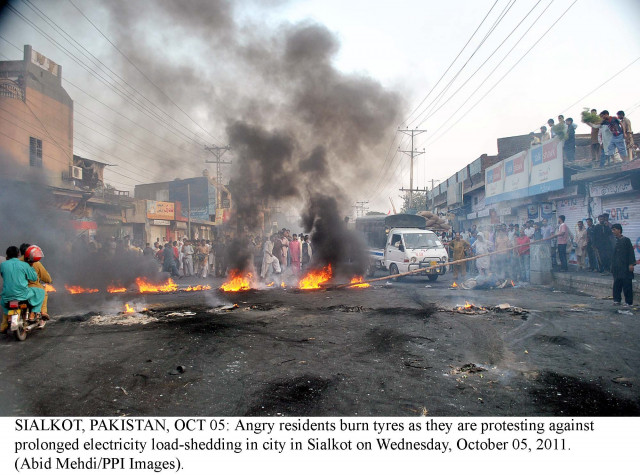Addressing the problems of the power sector
The supply chain needs to be strengthened, by addressing the factors that are contributing to its frailty.

The supply chain of the fuel, which is transported mostly from Karachi to generation plants upcountry, may have been disrupted and this shows the fragility of the system in place for a service as crucial as electricity. The supply chain needs to be strengthened, by addressing the factors that are contributing to its frailty. One is the issue of circular debt. Sometimes, the independent power producers (IPPs) run out of money to purchase the fuel, and this is linked to the fact that the government owes them significant amounts in arrears from the purchase of electricity. The amount of circular debt is upwards of several hundred billion rupees, and this means that successive governments have simply looked the other way as it ballooned out of control.
Currently, there is a power shortage of some 8,000 MW, almost half of the country’s electricity needs. Part of it is caused by a lack of generation capacity — but most of it is because of the inability of the IPPs as well as those in the public sector — to produce even the electricity that their installed capacity permits them. That is precisely why addressing the issue of circular debt is so important. Another matter that also exacerbated the situation was that of rental power plants. Most of them were allowed to charge excessive tariffs, rates that Wapda has been unable to pay regularly. So, in a sense, the addition of rental power plants to the national grid worsened the country’s circular debt. Now, all this has resulted in a law and order issue but the stakeholders involved in the electricity industry — the IPPs, refineries, and consumers alike — have been demanding for months that the government resolve this crisis before it becomes unmanageable. In this context, for the petroleum minister to say that the issue will “soon be resolved” holds little credence because no one really believes the government on this issue. Indeed, if the crisis had indeed been ‘resolved’, the prolonged power outages would have subsided.
The PPP government has been in power for well over three years so the excuse that it inherited the crisis from the Musharraf regime no longer holds water. What it needs to do, apart from short-term, stop-gap measures such as making emergency payments to clear a fraction of its arrears to the IPPs, is to come up with a medium- and long-term strategy to enhance the country’s power generation capacity over, say, the next five-year period. Although the economy is not growing by a healthy rate, it can be assumed that demand for electricity will rise in the coming years. And if the situation remains the same, with the government being a silent spectator, always in a reactive, as opposed to a proactive mode, the future could see more serious trouble.
The solution to the power crisis will not be found in feel-good solutions like exploring solar or wind energy, since these, for the time being, are prohibitively expensive. Equally, measures like reintroducing daylight savings hours, having a two-day weekend and forcing shops to close early, have only a symbolic effect. Until there is a large-scale effort to develop dams and tap the potential of rental power plants and IPPs in an honest and transparent manner, there will be no relief for the thousands of protesters on the streets and the millions suffering silently in their homes.
Published in The Express Tribune, October 6th, 2011.

1724319076-0/Untitled-design-(5)1724319076-0-208x130.webp)

















COMMENTS
Comments are moderated and generally will be posted if they are on-topic and not abusive.
For more information, please see our Comments FAQ